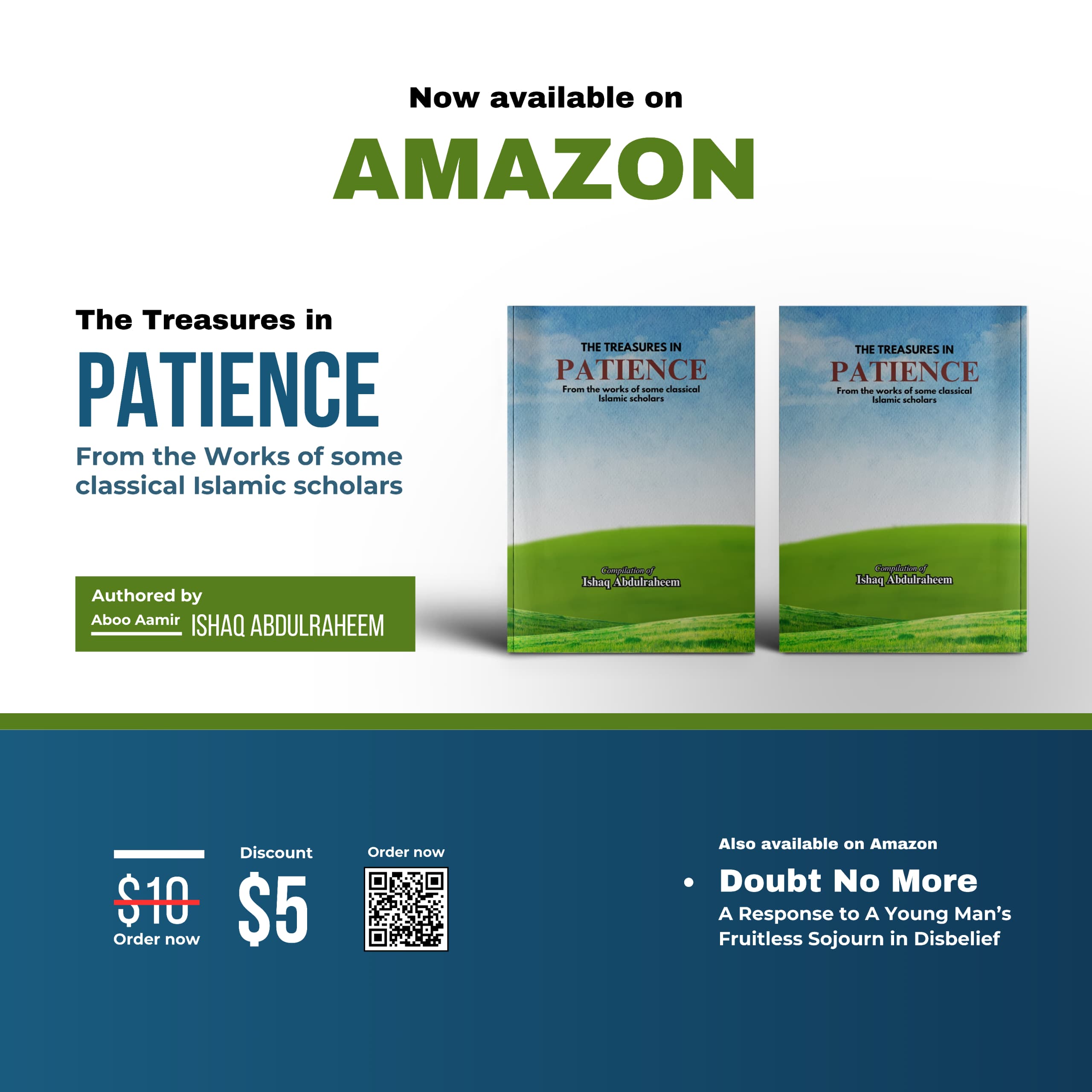All praise is due to Allâh and may He exalt the mention of the Prophet (sallal Laahu ‘alayhi wa 'aalihee wasallam) and render him, his households, companions and those who thread their path safe from every derogatory thing.
It is disheartening today that people have attached their Deen to particular individuals among the scholars who might have differences with equally steadfast contemporary co-scholars. They thereby create enmity among their fellow Salafee brothers based on such differences. Meanwhile, it is the Sunnah of Allâh that there will always be differences among mankind.
Allâh says:
“Had Allâh willed, He would have made you one nation [united in religion], but [He intended] to test you in what He has given you; so race to [all that is] good. To Allâh is your return all together, and He will [then] inform you concerning that over which you used to differ.” [Al-Maa’idah, 48].
He also says:
“And if your Lord had willed, He could have made mankind one community; but they will not cease to differ,” [Hood, 116].
He noblest of mankind, the one chosen by Allâh for His message differed with members of his household and some of his Companions. The Companions too differed among one another. Differences in the generations after the Companions is nothing hidden to seekers of true Islamic knowledge. However, these differences did not lead to labelling one another as innovators or kuffar as the situations today reveal. The reason being that they understood the implications of the following divine statements:
Ibn Umar narrates: the Messenger of Allâh (sallal Laahu ‘alayhi wasallam) said:
'Whoever promotes rancor (among Muslims) without a justification will remain under the anger of Allâh until he refrains.' - Saheeh Targheeb, 2270.
The Prophet (sallal Laahu ‘alayhi wa 'aalihee wasallam) also said:
'Whoever says about a believer that which is not his', Allâh will make him dwell in the mud of confusion from where he will never be able to come out.'- Saheeh al Jaami’, 6196.
AbdulLaah bn Umar (may Allâh be pleased with him) reported: a man came to the Messenger of Allâh (sallal Laahu ‘alayhi wa 'aalihee wasallam) and said: O Messenger of Allâh, how many times should I pardon my maid?
He (sallal Laahu ‘alayhi wa 'aalihee wasallam) said: “Seventy times daily!” -Saheeh Targheeb, 2289. So, if a maid is deserving of pardon seventy times daily, the scholars are more deserving of our excuses, O honorable Salafees.
To show us that differences among scholars are not new and that it is the understanding with which such issues are handled that are lacking in our time; Imam Ibn Abdil Barr brought the following narrations in Jaami’ Bayaanil ‘Ilm (2/1094-1115 with abridgements).
When our mother, ‘Aaishah (may Allâh be pleased with her) said:
“Aboo Sa'eed and Anas bn Maalik knew nothing of the Hadeeth of the Messenger (sallal Laahu ‘alayhi wa 'aalihee wasallam) since they were young during the Prophet's time...’
Also, when it was said to ‘Urwah that Ibn Abbaas opines that the Messenger of Allâh (sallal Laahu ‘alayhi wa 'aalihee wasallam) stayed in Makkah for thirteen years after he was commissioned as a Prophet, Urwah said in refutation:
“He must have taken that information from a poet!”
Our Deen would be in danger if we would take to that kind of statements without scholars’ explanations. This is not because we consider them as lies but because those are Companions and their differences is none of our businesses.
These kinds of disparaging statements of scholars against one another stems from human deficiencies which could breed fitnah and we – as a measure of safety - should never be a party to them lest we deny ourselves of many benefits which we may never gain except through them.
He continued…
Imam az-Zuhree (one of the leading scholars among the Taabi’oon (the generation after the Companions)) regarded the scholars of Makkah to have spoilt Islam!
Who are we to exemplify this kind of statement?
Imam Ash-Sha'bee (about whom Mak-hool said: I never met anyone who is as knowledgeable as he) said concerning anNakha'ee (faqeehun thiqqah according to Ibn Hajar): 'A one eyed fellow who steals my knowledge.'
Upon this, An Nakha'ee retorted: He is a perpetual liar... he never heard from Masrooq...'
Are we to take to that too, O Salafees?
Qataadah was reported to have said, ‘When is it that fishermen now become scholars’ while disparaging Yahyaa bn Abee Katheer whose family practice fishing.
The case with Imaam as-Sakhaawee and Imaam Suyootee is not hidden from students of knowledge.
All these and others were written and people of knowledge have taught us how to deal with such situations with knowledge.
It is one of the exceptional blessing of Allâh during the times of the three Shaykhs, Ibn Baaz, al Albaanee and Ibn al ‘Uthaymeen that such problems is well curtailed in their midsts. But after their demise, the differences among their students and adherents were so alarming and it brought much confusions. Such problems were also aggravated by some enemies of Islaam and enemies Da’watus-Salafiyyah - through the social and print media.
Terms such as Madkhalis, Halabis, Hajooris, Jaamis, Ahlut-Tamayyu’, wrong labeling of others as hizbees, haddaadees etc. were coined to spread ill talks about the scholars who are custodians of the knowledge of Islaam, the Legacy of the Prophets. Many inadvertent Muslims took these and spread them all about, fostering evil in the Ummah.
O Salafis, as Imaam al ‘Abbaad had admonished, generations are being wasted upon these matters and instead of facing the learning of beneficial matters in the deen, people got engulfed in 'Shaykh so and so said this', 'shaykh this and that refuted' etc, which is nothing but fitnah and a waste of life!
Peaceful atmosphere as it is said, is never paralleled by any other thing.
Worst still, people who will eat and dine peacefully with their Kuffaar countrymen will busy themselves with jibes from scholars to scholars and would carry books of refutations all about spreading such evils by all means.
There are very many examples of disparaging statements between the scholars of old and present and we are very sure that these are due to one interpersonal problem or the other between them since they are unarguably among the scholars of Sunnah. Scholars of Jarh wat Ta’deel used to be very cautious and they used not to state their judgement any individual without an exhaustive verifications of what others have said about such individual.
Even if a contemporary scholar do differ with them in matters, they do exercise justice in their estimation of one another.
Imam Ahmad said:
“In khuraasaan, no one is as virtuous as Ishaaq bn Raahaawayh among the inhabitants even though he does contradict us in certain matters” – Siyar (11/371).
Imaam Ibn Abdil Barr concluded on such matters in Jaami’ Bayaanil ‘Ilm thus:
“Let everyone hold on to this fact; that he should not accept any claim of dispraise without proofs about any known upright scholar with zeal for Sunnah and courteous character and whose virtue outweighs his deficiency. This is the truth and any contrary opinion is not correct, Allâh willing.”
The intrinsic human nature of having differences themselves has to be handled with knowledge and care. That is why scholars have mentioned what should be our attitude towards ‘kalaamul aqraan’ (the negative comments of equally steadfast scholars of Sunnah of a contemporary age against one another).
Imam al-Albaanee said while discussing these matters in a questioning session:
ليس كل من وقع في البدعة وقعت البدعة عليه '
‘It is not everyone who perpetrates an act of innovation that could be tagged as an innovator.'
From the foregoing, he defined a mubtadi' (an innovator) as:
من قام ببدعة وأقيمت عليه الحجة ثم أصر على تلك البدعة
'He who perpetrates an act of bid'ah and he is called to order with hujjah but remained adamant on the act of bid'ah. (Silsilatul Hudaa wan Noor)
Brothers, how many of those whom you have castigated among the Salafi scholars that you could establish that the Hujjah was established against them?
Ibn Taymiyyah (may Allâh be pleased with him) said:
‘Many of the erudite scholars, past and present have said or engaged innovative practices but unknowingly…’
Imam Adh Dhahabee said:
‘ …So, when a renown scholar maintains many correct positions and he is known to be steadfast upon the truth and righteousness…, his shortcomings should be pardoned and we must not castigate him as misguided by shunning him in disregard of his virtues. Even though we would not follow him in his error and innovative practice, we should seek Allâh’s forgiveness for him from such.’ - (Siyar 5/271 via ‘rifqan’).
Therefore, as Shaykh Abdul-Muhsin al-‘Abbaad had admonished, we should shun busying ourselves with the hunt of the mistakes of scholars and spreading that on the internet from where others would nurse evil against the people of knowledge; an endeavour which brings no good, by the Lord of the Ka’bah!
He advised that students of knowledge to make good use of their precious time by occupying themselves with beneficial knowledge from great scholars, such as Ibn Baaz and al Uthaymeen (may Allâh be pleased with them) and others.
This endeavour of mine is never a call to tammayyu’ (double edged stances towards innovators and people of Sunnah) nor is it aim at refuting any individual, group or any Muslim community.
It is a discharge of the obligation of Naseehah to the generality of the Muslims as the Prophet (sallal Laahu ‘alayhi wa 'aalihee wasallam) said in the hadeeth of Tameem ad-Daaree (may Allâh be pleased with him):
‘(This religion is Naseehah) towards Allâh, His Prophet, the Muslim scholars and all Muslims.’ – Muslim, #55.
Jareer bn AbdilLaah (may Allâh be pleased with him) also said; ‘I took the oath of allegiance with the Messenger of Allâh (sallal Laahu ‘alayhi wa 'aalihee wasallam) upon the establishment of Salaah, giving out Zakaah and making admonition to every Muslim.’ – Bukhaaree and Muslim.
I pray Allâh to open the hearts to accepting the truth contained here (as such is from Him) and I seek His pardon from any mistake I might have made while writing the piece (as that is from me and Shaytaan). May He rectify the differences among salafiyyah adherents and guide all to the forthright path.
Wasallal Laahu wabaarik ‘alaa Muhammadin wa aalihee wasahbihee wasallim.
Abu Khadeejah al-Atharee
24th Shawwal, 1434AH / 31st Aug., 2013CE.
Ede, Nigeria.

